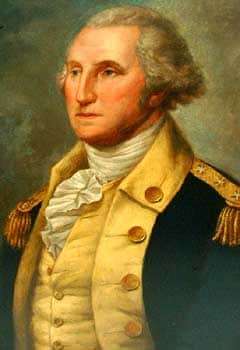The Volokh Conspiracy
Mostly law professors | Sometimes contrarian | Often libertarian | Always independent
It's a crime to use George Washington -- or any other U.S. military figure -- in advertisements in Louisiana or Arizona

La. Rev. Stats. 14:102.21 provides,
A. It shall be unlawful for any person to use for the purpose of advertising for the sale of any goods, wares, or merchandise, or for the solicitation of patronage by any business the name, portrait, or picture of any deceased soldier, without having obtained prior consent to such use by the soldier, or by the closest living relative, by blood or marriage, of the deceased.
B. Whoever violates the provisions of this Section shall be fined not more than one thousand dollars, imprisoned for not more than one year, or both.
C. For purposes of this Section, "soldier" means any active duty member or former member of the armed forces of the United States including any member who was killed in the line of duty.
Arizona has a similar statute, though with some exceptions.
The so-called "right of publicity," which limits the use of people's name and likeness for commercial purposes, has its share of problems, including with regard to advertising. But at least most right of publicity statutes (and common-law rules) provide that the rights expire some time (often 50 or 70 years) after the soldier's death - and at least they aren't criminal statutes, punishable by prison time. And they generally try to limit the uses in some measure; on its face, this statute (though not the Arizona one) would apply to advertisements for a biography of an American military leader as well.
Not so in Louisiana and Arizona, where the law would apply to George Washington (including, I would think, pictures of dollar bills or quarters), Alexander Hamilton, Andrew Jackson, Ulysses S. Grant, Teddy Roosevelt, Justice Oliver Wendell Holmes and many more. At least Confederate soldiers wouldn't be covered - unless they had also been members of the U.S. military.
Thanks to Prof. Jennifer Rothman for the pointer.


Show Comments (0)